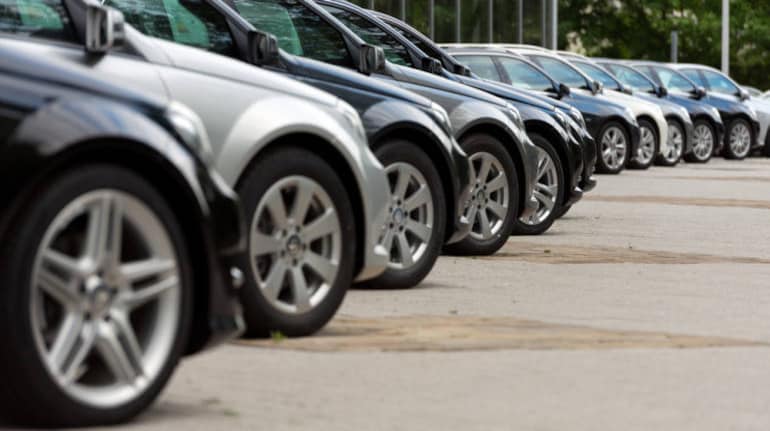



Demonetisation and the transition to BS IV (Bharat Stage IV) were big challenges for commercial vehicle manufacturers and their financiers in the last eight months. But, its the new uncertainty they are grappling with now, the implementation of GST (goods & service tax) from July 1, that is set to change the dynamics of the sector.
Prima facie, the business of commercial vehicle financiers does not undergo a sea change post GST except for multiple registrations (state-wise registrations) and increase in service tax on core services like loan processing from 15 to 18 percent. However, the players are carefully monitoring how the ground reality unfolds for their borrowers.
Should CV financiers worry about GST?Umesh Revankar, Managing Director & CEO, Shriram Transport Finance feels there could be a temporary disruption on account of implementation of GST. There is yet no clarity on how owners of single trucks would comply with the new compliance requirements after GST kicks in. He expects some slowdown in consumption as the entire value chain adjusts to the change. De-stocking and slowdown in consumption might impact freight rates and demand for commercial vehicles for a while. However, GST is unlikely to alter the basic dynamics of the new as well as the used vehicles industry.
The used vehicles industry usually has single-vehicle owners as customers. Even if organised large fleet operators consolidate their position in the market, they will still prefer an asset light model and take vehicles from the single-truck owners rather than blocking their capital in purchasing assets.
The GST rate applicable for purchase of a new commercial vehicle is 28 percent. However, the small truck owner will likely come under the Composition Scheme (applicable to annual turnover upto Rs 75 lakhs where he pays 1 percent tax). When opting for the Composition Scheme under GST, a taxpayer will be required to file summarized returns on a quarterly basis, instead of three monthly returns (as applicable for normal businesses). Hence, the total incidence of tax is lower if the fleet operators go the asset-light way.
Beside GST, the other issue of relevance for the truck financing industry today is the recent spate of loan waivers in Indian agriculture. The industry, part of whose fortunes is linked to the agricultural sector, is carefully monitoring the developments. While the forecast of a good monsoon is music to their ears, the news of loan waivers is not quite as pleasant.
Although acknowledging the ‘moral hazard’ problem, the truck financing industry feels intentional defaulters are not a big part of the industry. The borrowers of commercial vehicles make good money by selling the vehicles after three to four years and have close to a 40 percent equity contribution in the vehicle. Hence, until cash flow is severely disrupted there is no intention to default. Moreover, the payment cycle of a crop loans is six months whereas for commercial vehicles it is monthly. Hence, the assets are repossessed quickly once early signs of stress are visible.
Despite the near-term headwinds, the commercial vehicle ecosystem has much to look forward to post the six months of disruption post GST.
Under GST, levy of tax is on supply. Accordingly, any stock transfer is taxable. For intrastate transfer, stock transfer is taxable if the entity possesses more than one registration in one state. All inter-state stock transfers are taxable.
The taxability of stock transfer under GST will have an impact on cash flow of firms and might force rationalisation of their back-end infrastructure. This will lead to rationalisation (reduction) in the number of warehouses and encourage the emergence of a hub-and-spoke model.
The impact of this will be transformative for the road sector and the commercial vehicles industry.
We envisage the movement of vehicles would certainly increase centering on the hub.
While heavy vehicles will carry the goods from the hub, a larger number of smaller vehicles will be in demand for the last mile connectivity.
On-the wheels inventory will increase multi-fold whereas in-depot inventory will decline. With the decrease in the number of warehouses, vehicles will become quasi warehouses and idling time of vehicles will increase.
Industry experts feel both the quantity and better quality of vehicles will be in demand as a result of rationalisation of the back end infrastructure. The mode of transporting cargo openly in trucks is likely to be replaced by containerised cargo.
While initially there will be demand for heavy commercial vehicles, with a lag of a year, demand for medium and LCV (light commercial vehicles) will take off. Globally, for every heavy commercial vehicle, there is demand for three redistribution vehicles on an average. In India, the multiple is less than two times. In the medium term this looks all set to change.
Commercial vehicle players like Ashok Leyland, Eicher Volvo, SML Isuzu and Tata Motors as well as the financiers can look forward to exciting opportunities once the dust settles post the GST disruptions.
Discover the latest Business News, Sensex, and Nifty updates. Obtain Personal Finance insights, tax queries, and expert opinions on Moneycontrol or download the Moneycontrol App to stay updated!
Find the best of Al News in one place, specially curated for you every weekend.
Stay on top of the latest tech trends and biggest startup news.